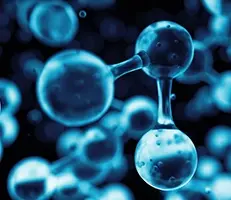- TRT
-
by Bradley Keys
Table of contents
- Testosterone: The Natural Hormone
- Anabolic Steroids: The Synthetic Alternative
- Testosterone Replacement Therapy (TRT) vs. Steroid Abuse
- Health Risks Associated with Steroid Abuse
- Benefits of Medically Supervised Testosterone Therapy
- Who Should Consider Testosterone Replacement Therapy?
- The Role of Lifestyle Changes in Managing Low Testosterone
- Steroids in Sports: Ethical and Legal Implications
- Summary
- Frequently Asked Questions
- Testosterone and Steroids & References
Testosterone is a naturally occurring hormone vital for many physical functions, whereas steroids, like anabolic steroids, are synthetic substances that can replicate testosterone’s effects. This article uncovers the key “difference between testosterone and steroids”, scrutinizing their unique impacts, applications, and legal considerations.
Key Takeaways
- Testosterone is a natural hormone essential for numerous physiological functions including sex drive, muscle mass, and bone health, and imbalances can lead to various health issues.
- Anabolic steroids are synthetic substances that mimic testosterone effects and are commonly used illegally for performance enhancement, which can cause serious health risks like liver damage, hormonal imbalances, and cardiovascular problems.
- Testosterone Replacement Therapy (TRT) is a medically supervised treatment for low testosterone levels and differs from steroid abuse in purpose, dosage, and legality, offering benefits like improved libido and mood with controlled risks.
Testosterone: The Natural Hormone

Testosterone, a natural steroid hormone, plays a vital role in our bodies, regulating a host of physiological functions. Some of the functions that testosterone regulates include:
- Sex drive
- Muscle mass
- Red blood cell production
- Bone health
In addition to these physical functions, testosterone also has an impact on emotional wellbeing and cognitive functions like memory. This demonstrates the far-reaching impact of balanced testosterone levels in the body.
However, low levels of testosterone can impair these functions, leading to reduced estradiol production and affecting body composition and sexual function. Should you encounter symptoms of low energy, reduced sex drive, or other indicators of low testosterone, consulting hormone specialists for guidance on sustaining healthy testosterone levels becomes imperative.
Anabolic Steroids: The Synthetic Alternative

Anabolic steroids, also known as anabolic steroid, are synthetic versions of testosterone, often containing other chemicals. These substances mimic the effects of testosterone, enhancing performance and promoting a muscular appearance. Not surprisingly, athletes, bodybuilders, and those seeking a muscular physique are common users of anabolic steroids. However, the use of illegal steroids is not only dangerous but also prohibited in many sports and countries.
These individuals, often referred to as steroid users, turn to performance-enhancing steroids to improve athletic performance and quickly build muscle mass. However, these benefits come at a significant cost. The misuse of steroids can lead to serious health risks, including:
- liver damage
- cardiovascular problems
- hormonal imbalances
- infertility
- mood swings and aggression
- acne and other skin problems
- stunted growth (in adolescents)
- increased risk of certain cancers
In addition to these risks, it’s important to note that rapid muscle growth achieved through the use of steroids may not be sustainable or healthy in the long term.
We’ll explore these health risks in more depth later in this article.
Testosterone Replacement Therapy (TRT) vs. Steroid Abuse
Testosterone Replacement Therapy (TRT) and steroid abuse are two very different approaches to manipulating testosterone levels. TRT aims to restore normal testosterone levels for medical reasons, whereas steroid abuse illegally elevates testosterone for performance or aesthetics.
Grasping the differences between TRT and steroid abuse is significant. We’ll proceed to discuss distinctions based on purpose, dosage, and legality, thereby aiding your comprehension of the respective benefits and risks.
Purpose: Medical Treatment vs. Performance Enhancement
Testosterone Replacement Therapy (TRT) is a medically supervised treatment designed to address conditions like low testosterone levels. If you’re experiencing symptoms of low testosterone, such as fatigue or reduced sex drive, TRT offers a legitimate, medically justified treatment option under professional guidance.
Conversely, abusing steroids, which is typically directed towards non-medical goals like improving physical appearance and augmenting athletic performance, usually occurs devoid of medical supervision. Steroid abusers generally lack medical grounds for steroid use, heightening the potential for misuse and steroid abuse.
Dosage: Regulated vs. Unregulated
Dosage presents another primary distinction between TRT and steroid abuse. TRT involves medically appropriate, regulated doses of testosterone to sustain normal, healthy hormone levels. Medical professionals tailor these dosages to individual health requirements.
Conversely, steroid abusers often self-administer doses that are significantly higher, sometimes up to 100 times greater than medically recommended doses for TRT. The intent behind this misuse is typically to achieve a certain physique, driving the use of much higher doses compared to the health-focused approach of TRT dosage.
Legality and Medical Supervision
Legality is another crucial distinction between TRT and steroid abuse. Testosterone replacement therapy (TRT) is legal and provided only under strict medical supervision to treat specific conditions related to low testosterone levels.
In contrast, steroid abuse, which can involve taking doses far beyond those prescribed for any medical condition, is illegal due to the associated health risks and unfair advantage in sports. This difference underscores the importance of medical supervision when dealing with substances that have such significant effects on the body.
Health Risks Associated with Steroid Abuse

Testosterone therapy, when supervised by a medical professional, provides manifold benefits. However, abusing anabolic steroids can precipitate grave health complications. Persistent misuse may cause:
- liver and heart issues
- strokes
- blood clots
- cancer
Note that these risks stretch beyond athletes’ professional careers, potentially affecting their overall well-being.
Physical side effects of steroid misuse include liver tumors, kidney failure, acne, premature hair loss in males, deepened voice in females, and a higher risk of infections from needle injections. Steroid use also disrupts sexual development and performance, leading to conditions like irregular menstrual cycles in females, breast enlargement in both genders, testicle shrinkage, and erectile dysfunction. Furthermore, psychiatric problems, including paranoid jealousy, aggression, delusions, mania, and impaired judgement, can develop due to the misuse of anabolic steroids.
Benefits of Medically Supervised Testosterone Therapy

In contrast to the serious health risks posed by steroid abuse, medically supervised testosterone replacement therapy, including testosterone injections, offers proven and precise benefits. This approach can improve libido, sexual function, and performance, as well as enhance mood and energy levels.
What’s more, because it’s managed by healthcare professionals, TRT has a controlled treatment process that results in a lower risk of side effects compared to unregulated steroid abuse. Under medical supervision, TRT can lead to beneficial alterations in body composition, such as a reduction in fat mass and an increase in muscle mass and strength.
Monitoring Testosterone Levels

Consistent monitoring of testosterone levels proves integral to effectual and safe TRT. Blood tests play a paramount role in this process, gauging total, free, and bound testosterone in the body. To accurately monitor testosterone levels, blood samples are typically collected between 7 and 10 AM when testosterone concentration is highest.
After starting TRT, monitoring sessions occur every 3 to 6 months until levels stabilize, after which annual check-ups are usually sufficient. This ensures that the dosage of TRT is customized for each patient, using blood test results taken before the start of treatment.
Who Should Consider Testosterone Replacement Therapy?
Clinically, low testosterone or “low T” corresponds to a blood level below 300 ng/dl, which may induce symptoms like fatigue, low energy, diminished sexual drive like erectile dysfunction, or brain fog. Factors contributing to low testosterone levels could encompass testicular cancer, head injuries, or the natural aging process.
Men exhibiting symptoms of low T and who have low testosterone levels confirmed through a blood test are prime candidates for testosterone replacement therapy. Regular monitoring of testosterone levels is essential in diagnosing abnormal testosterone concentrations, which can manifest as symptoms like low sex drive and erectile dysfunction.
The Role of Lifestyle Changes in Managing Low Testosterone
Although TRT can effectively treat low T, it isn’t the sole solution. Embracing healthy lifestyle changes proves instrumental in managing low testosterone successfully, either in tandem with TRT or as an independent strategy. Moderate weight loss, for instance, has been shown to naturally increase testosterone levels.
Regular exercise, particularly weight lifting, can also positively affect testosterone and human growth hormone levels. Additionally, eating a diet low in sugar and ensuring proper sleep hygiene are important factors in managing low testosterone levels. By incorporating these lifestyle changes, you can take proactive steps towards maintaining healthy testosterone levels and overall well-being.
Steroids in Sports: Ethical and Legal Implications
Employing anabolic-androgenic steroids in sports brings about considerable ethical and legal consequences. Athletes resorting to performance-enhancing drugs could potentially face penalties or exclusion from sports participation. In addition, a sportsman may face suspension for using testosterone doses without medical justification. This can have serious consequences for their career.
Steroid use in sports is considered cheating and is a form of doping that can give athletes an unfair advantage. The pursuit of victory should never come at the expense of one’s health or integrity, emphasizing the importance of playing fair and staying clean in sports.
Summary
Understanding the key differences between testosterone and steroids is crucial for anyone considering their use. Whether it’s the natural hormone testosterone or synthetic anabolic steroids, the decision to use these substances should never be taken lightly. Medical supervision is essential, as is a commitment to maintaining a healthy lifestyle.
While testosterone replacement therapy can help manage low testosterone levels and improve well-being, it’s important to remember that misuse or abuse can lead to significant health risks. As we’ve highlighted in this article, an informed, responsible approach to testosterone and steroids is vital for maintaining health and well-being.
Frequently Asked Questions
The key differences between testosterone and anabolic steroids lie in their origin and usage: while testosterone is a natural hormone with various physiological functions, anabolic steroids are synthetic versions of testosterone commonly used to improve performance and increase muscle mass.
Testosterone Replacement Therapy (TRT) is a medically supervised treatment that aims to restore normal testosterone levels for medical reasons.
Abusing steroids can lead to severe health issues such as liver and heart problems, strokes, blood clots, cancer, psychiatric problems, and disrupted sexual development. It’s important to be aware of these risks and seek help if needed.
Men experiencing symptoms of low testosterone and confirmed low levels through a blood test should consider Testosterone Replacement Therapy. It is important to consult with a healthcare professional for personalized advice.
Making lifestyle changes such as moderate weight loss, regular exercise, a diet low in sugar, and proper sleep hygiene can effectively help manage low testosterone levels. These changes can make a meaningful difference in your hormone levels and overall well-being.
Testosterone and Steroids & References
-
- https://www.ncbi.nlm.nih.gov/pmc/articles/PMC8451690/
- https://newsroom.clevelandclinic.org/2023/06/16/cleveland-clinic-led-trial-finds-testosterone-replacement-therapy-does-not-increase-incidence-of-major-adverse-cardiac-events-for-men-with-low-testosterone
- https://www.nature.com/articles/s41443-023-00724-2
- https://www.health.harvard.edu/mens-health/is-testosterone-therapy-safe-take-a-breath-before-you-take-the-plunge
- https://evidence.nihr.ac.uk/alert/research-provides-reassurance-about-safety-testosterone-treatment/












